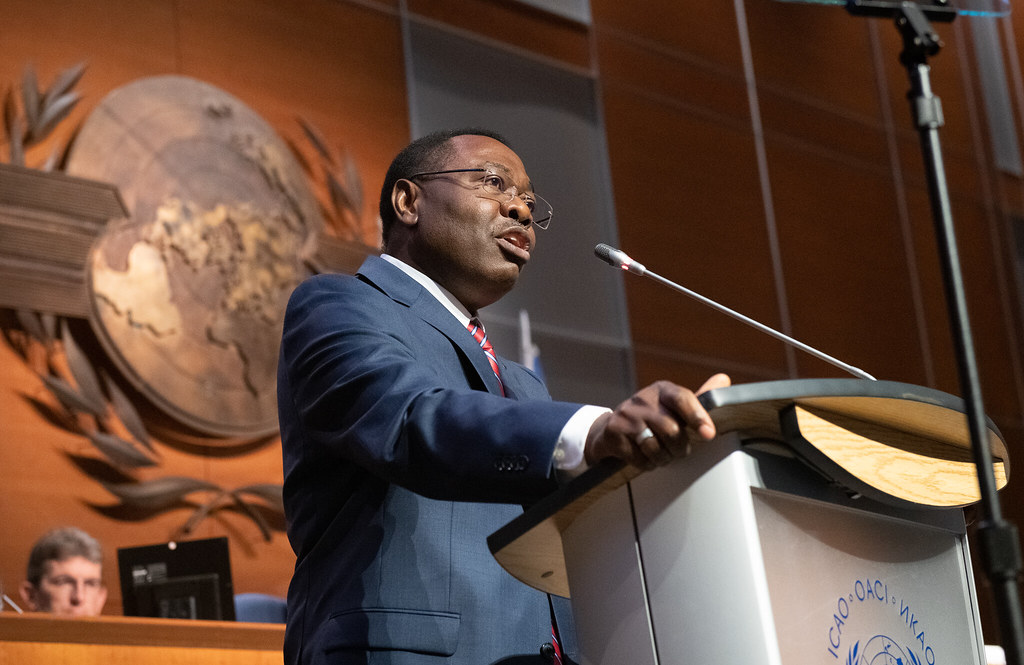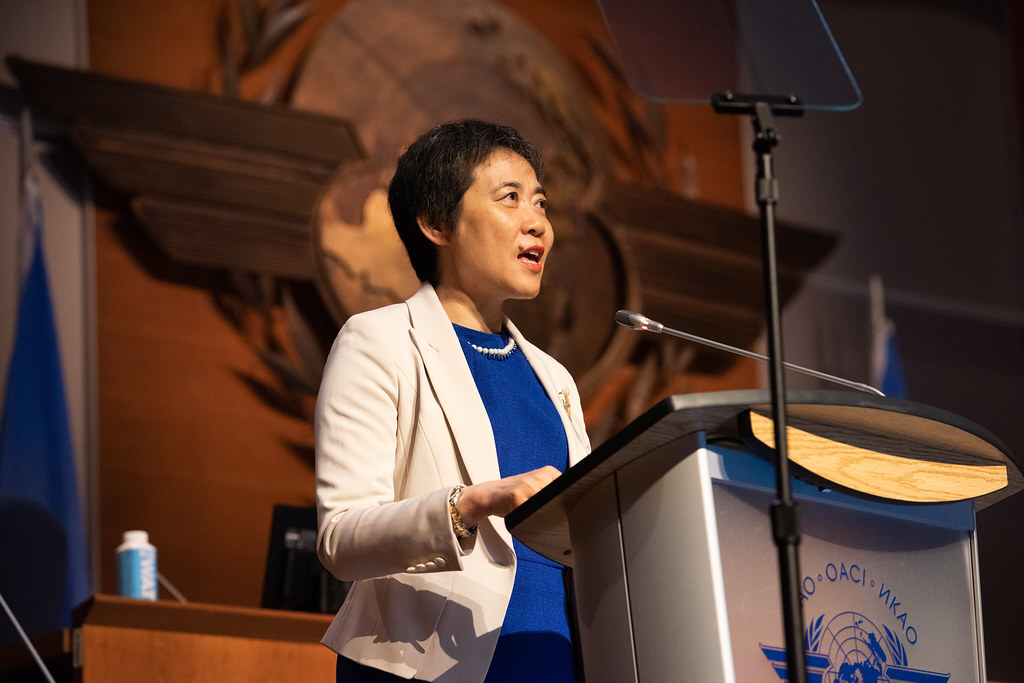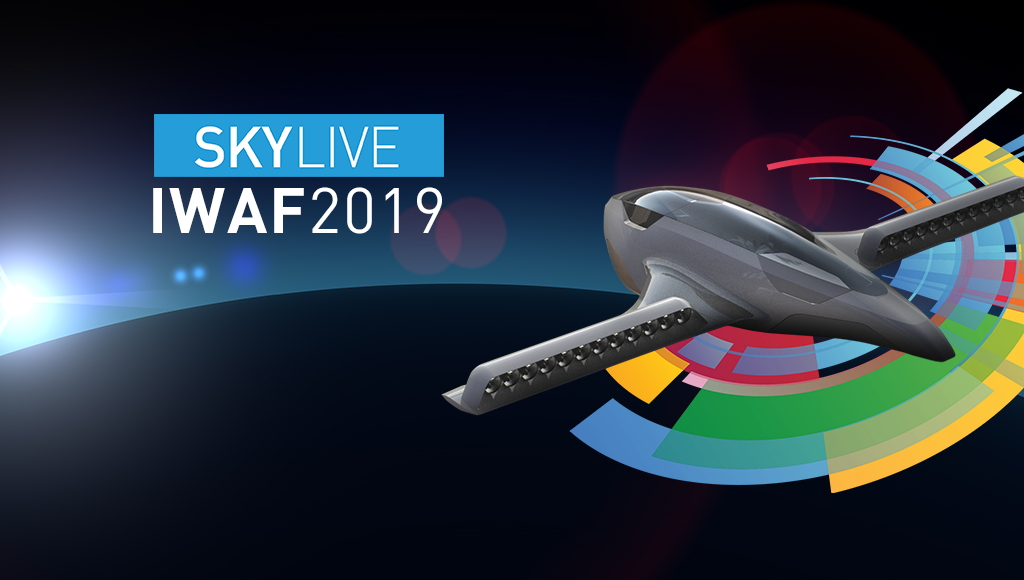Twenty-four Ministers of Transport attending ICAO’s World Aviation Forum (IWAF) agreed to heighten innovation in the aviation sector as a means to accelerate progress towards the achievement of the United Nations Agenda 2030 Sustainable Development Goals, including the need to take urgent action to combat climate change and its impacts.
“We are fully aware of, and welcome the potential of these technological and regulatory innovations, to significantly accelerate the realization of socio-economic benefits and improve environmental performance through a seamless air transport system,” stated the Ministers in a joint Outcome Document.
The President of the ICAO Council, Dr. Olumuyiwa Benard Aliu, successfully set the stage for their joint declaration through his opening remarks: “Frontier technologies already at hand could be instrumental to accelerating how quickly civil societies can realize the significant socio-economic and environmental benefits provided by ICAO compliant air transport system,” he declared.
Citing the potential of emerging aviation technologies to provide an opportunity for “leapfrogging to better bridge the technological divides between developed and developing countries,” the President called for cooperation among all stakeholders to identify and evaluate the effects of these new technologies, accurately estimate the future demand and costs incurred for using them, and to mobilize and secure necessary resources, including through appropriate strategic and regulatory frameworks.

“It is of paramount importance that we realize together an effective and balanced approach capable of engaging innovators and fostering innovation, while at the same time safeguarding needs relating to consumer protection, regulatory and policy enforcement, legal security for businesses, in addition to fair and sustainable economic and social development,” remarked President Aliu.
IWAF was launched five years ago to provide a cooperative and strategic planning platform for States, aviation stakeholders, and funding partners. The annual Forum enables participants to identify opportunities and approaches to support national sustainable development strategies through the enhancement of States’ domestic and international air connectivity.
This year’s edition was the first to focus specifically on the criticality of innovation to the future of aviation, and drew 597 participants from 99 countries and 22 international organizations.
ICAO Secretary General Fang Liu welcomed the commitment by the Ministers to support this vision in her closing remarks.
“The pace of innovation and modernization is accelerating and continues to disrupt the world around us. Changes are underway on a vast scale, with the Internet of Things, digitalization and frontier technologies transforming economies, governments, and societies in complex, interrelated and unpredictable ways,” Dr. Liu said.
“Government policies and practices, however, have often not kept up with the speed of change. Building a culture of innovation must therefore be a top imperative for States today, and it’s recommended to take a portfolio approach to comprehend, foster, and successfully manage the multi-faceted challenges of innovation.”

Innovation in the aviation refers not only to new technologies, but also of how the entire sector is managed in terms of its ability to act as a catalyst for global prosperity and local quality of life. It also pertains to management of the opportunities and challenges of increasing demands from the community, and the agility with which these are communicated. Here, the aviation sector’s exemplary progress toward carbon neutrality is a striking case in point.
Dr. Liu stressed that a failure in this regard could have significant consequences for the global flight network. “We must better reconcile the impact growth will have on air transport emissions. It is an innovation challenge which could well prove to be make-or-break with respect to the sustainability of certain types of operations,” said.
Besides creating good regulatory framework conditions in response to these challenges, governments also need to be more actively involved and cooperate more closely with industries, technology providers, private investors, and many other stakeholders. This is in turn also calls for public investment in human capacity: i.e., higher numbers of skilled professionals able to operationalize these new capabilities and opportunities.
“Innovations happen in large and small ways, and we should recall that it is the invisible hand of the State which in many cases provides the opportunities for innovations take place,” Dr. Liu concluded.
The Fifth ICAO World Aviation Forum concluded on 23 September 2019. We live-streamed the event as it took place at ICAO Headquarters. Though we broadcast all of the presentations on YouTube Live with SkyLive, you can follow the broadcasts on the above page by scrolling to through the event playlists. The Outcome Document that resulted from its Ministerial Roundtables helped set the tone for ICAO’s 40th Assembly.

